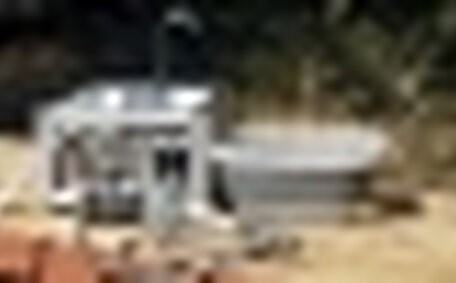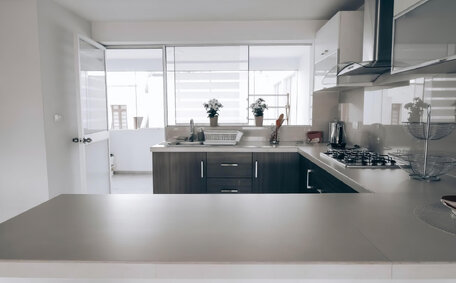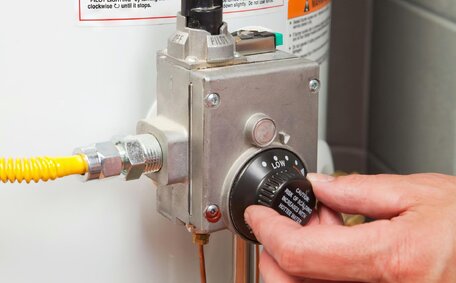Introducing Gas Hot Water Systems
Gas hot water systems are a popular choice for Australian homes, providing efficient water heating. Around 39% of homes rely on natural gas to fuel their hot water system. These systems work by using gas burners to heat water stored in an insulated tank, quickly and efficiently.
Compared to electric water heating systems, gas systems can supply heat faster and ensure a constant hot water flow. The burners deliver a powerful and consistent heat source to your water tank storage. Such systems ensure a steady supply of hot water, accommodating multiple uses simultaneously.
The main contributors to the installation cost include:
- Gas burner - provides heat by burning natural gas
- Water storage tank or continuous flow chamber
- Flue - exhaust pipe removing combustion byproducts
- Water pipes - carry cold water to be heated and hot water to fixtures
This reliable hot water system, utilising gas technology, is an appealing choice for a wide range of homes and budgets.
Breaking Down Upfront Costs
It’s crucial to understand the initial purchase and installation costs when comparing gas with electric systems. These upfront expenses play a major role in determining cost-effectiveness over the system’s lifetime.
The purchase price varies depending on the type of your hot water unit - storage tank systems range from $1,000 to $1,500, while instant and continuous flow units, including heat pump water heaters, cost $1,800 to $3,500. Instant gas hot water systems, which heat water on-demand, tend to be pricier initially but are more energy-efficient.
Installation costs can run higher than expected and are certainly a considerable factor to keep in mind. Basic installation costs start around $500, but can reach $1,000 or more if the system requires new gas lines or flue vents. Location, home size, and difficulty accessing hot water pipes impact pricing.
By breaking down these upfront costs, we can better evaluate gas hot water systems against alternatives like electric or solar gas solutions to choose the most suitable long-term option.
Purchase Price
The price is a key factor in choosing between gas and alternative heating solutions. Storage tank models typically range from $1,000 to $1,500. Instantaneous and continuous flow models are generally more expensive, costing about $1,800 to $3,500.
Electric system water heaters, particularly storage types, are cheaper upfront, with prices starting from $500. However, operating costs are higher over time. Solar hot water systems have the highest initial purchase cost at $4,000 to $10,000 installed.
The size of the gas hot water system also impacts pricing. Larger units and tanks to meet higher instant gas hot water demand cost more. Premium brands usually come with a higher price tag but offer longer warranties and higher energy ratings.
Considering only the upfront purchase cost doesn’t provide the full picture of the system’s value. Evaluating a hot water system’s cost-effectiveness requires considering both initial and ongoing costs over its lifespan.
Installation Costs
Installing a gas hot water system incurs additional costs on top of the purchase price. Installations typically range from $500 for a basic job up to $1,000 or more,
The main tasks involved in installing a gas hot water system are:
- Optimal placement of the storage tank or continuous flow unit
- Connecting gas and water pipes
- Installing flue venting for exhaust
- Making electrical connections
- Testing for leaks and proper operation
Additional costs may include:
- Plumbing modifications - $200 to $500
- New gas lines - $300 to $1,000
- Permits and inspections - $100 to $300
- Difficult access requiring wall removal - $200 to $1,000
To minimise installation costs, compare multiple quotes and select a reputable local plumber. Consider tankless systems, often the hot water system best for space-saving and fewer plumbing changes. Proper installation is essential for safe, efficient, and reliable operation.
Examining Operating Expenses
Operating expenses are the ongoing costs involved in running a gas vs electric hot water system. Key factors influencing your water heating expenses include:
- Energy rating - Higher-rated systems use less gas to heat water, cutting down on energy bills. Look for a minimum 4-star rating.
- Gas prices - Fluctuating natural gas prices directly impact running costs. Check historical pricing trends in your area.
- Usage patterns - Household size, shower lengths, appliance use affect daily hot water use needs and system runtime, measured in litres per usage event. Track your usage to size your system appropriately.
In terms of Running costs for gas storage systems are typically higher than for instantaneous systems due to continuous reheating, but they remain more affordable than electric options. However, instant flow systems provide a lower volume of hot water.
Electric hot water systems, for instance, can cost $200 to $550 annually based on tariff rates. Solar hot water cuts annual costs to $100 but has high upfront purchase and installation fees.
Carefully weigh the long term operating expenses against your hot water system type selected for your home’s needs.
Energy Usage Cost Comparison
In the long term, gas hot water systems are usually the most cost-efficient option in terms of energy usage. On average, gas systems cost $300 to $550 per year to operate. Electric hot water systems range from $400 to $850 annually, while solar hot water is cheapest at around $100 per year.
Thanks to generally stable and low natural gas prices, gas hot water systems maintain their cost-effectiveness when compared to electric systems. The high efficiency burners also minimise waste heat, keeping running costs low. Storage tank types may use more energy reheating water but deliver greater flow hot water rates.
Pump water heating systems, such as electric models and solar-backed setups, see their costs significantly influenced by power prices and user demand rates. Pump hot systems, like electric heat pumps, can cut energy use by 65% making them efficient for light usage.
A solar hot water system can work best for households with high daily demands. However, peak electric rates in winter can reduce these savings.
Considering factors like your location’s utility costs, household size, daily hot water requirements, and flow rate needs will determine true annual expenses. Select a system suited for your home’s consumption patterns to yield the greatest savings over time.
Environmental Impact
When it comes to environmental impact, gas hot water systems compare favourably to electric systems in terms of greenhouse gas emissions. Gas systems produce 20-40% fewer CO2 emissions compared to electric hot water units. This makes gas a greener heating option.
However, solar heat pump systems have the lowest carbon footprint. Harnessing the sun’s energy, solar water heaters cut energy costs and greenhouse gas emissions by about 60% when compared to traditional gas systems.
Heat pump hot systems also minimise environmental impact by using heat exchange instead of electricity or gas during warmer months. But cold weather forces the heat pumps to switch to carbon-intensive electric heating.
To lower their footprint, all system types should be correctly sized and operated efficiently based on your hot water usage. A well-sized gas system offers an environmentally friendly solution for reliable hot water delivery.
Suitability for Household Size
Gas hot water systems can accommodate varying household demands and sizes. Storage tank systems with larger tanks from 400 to 500 litres suit bigger families of 5 or more people requiring multiple hot water uses simultaneously.
For smaller households of 1-3 people, instant gas continuous flow systems work well. They continuously supply hot water when needed, without the necessity to store pre-heated water. Tankless units also save space.
For medium-sized households with 3-4 occupants, hybrid gas combi systems strike a balance. They combine a small storage tank for common demands along with a continuous flow instant heating backup for peak usages.
Consider your average hot water usage in litres per day to determine the most practical gas system size and type to effectively handle your household’s needs.
Durability, Lifespan and Maintenance
Gas hot water systems are built to last over 10-15 years with proper maintenance. Key factors impacting lifespan include:
- Build quality - Premium materials and thick insulation increase durability.
- Water quality - Hard water damages parts faster requiring earlier replacement.
- Usage patterns - Frequent heating cycles cause quicker wear and tear.
- Proper maintenance - Annual servicing improves efficiency and prevents issues.
Compared to electric systems lasting 5-8 years, the longer lifespan means gas systems can prove very cost effective despite higher initial purchase prices. Solar hot water systems can achieve over 20 years of efficient operation, thanks to their minimal mechanical components.
All hot water systems require periodic servicing every 1-3 years. Maintenance tasks on gas systems include:
- Inspecting burner assembly and cleansing as required
- Checking and adjusting water pressure
- Testing safety valves
- Clearing out sediment to minimise heat loss and maximise tank capacity
- Monitoring and replacing any corroded parts
Although servicing incurs costs, preventative maintenance ultimately saves money by avoiding costly repairs and enhancing energy efficiency.
Available Rebates and Incentives
There are several rebates and incentives available when purchasing a new high-efficiency gas hot water system that can help offset initial costs:
- Federal government rebates - Up to $1,000 is available from the Australian government for solar and heat pump systems. Gas systems do not currently qualify.
- State government rebates - Certain states provide $500 to $800 for 4-star rated systems. Eligibility terms apply.
- Supplier discounts - Many brands offer seasonal discounts or cashbacks ranging $200 to $500 on select models.
- Installation offers - Plumbers can get you free system upgrades, discounted labour or extended warranties during promotions.
Combining relevant rebates and sales incentives allows homeowners to save approximately 15-30% on the total upfront costs. Opting for an energy efficient gas system with a high star rating results in even greater long term savings from lower running costs over its lifespan.
Check with both federal and state governments regarding the latest rebate schemes. Discuss potential offers with suppliers and plumbing professionals to make an informed choice about the right gas hot water system for your home.
Weighing the Pros and Cons
To decide if a gas hot water system is correct for you, weigh up the following pros and cons:
Pros
- Lower running costs - Gas energy is generally cheaper per unit versus electric sources
- Quicker heating - Gas burners heat water more rapidly than electric elements
- Lower greenhouse emissions - Gas systems produce 20-40% less CO2 than electric
- Long lifespans of 10-15 years - Durable components offer good value over time
Cons
- High upfront costs - Purchase and installation fees are higher than electric systems
- Necessity for a venting flue - Gas systems require installation of a proper exhaust flue
- Reheating of stored water wastes energy - Tankless systems are more efficient
- Fossil fuel source - Not as eco-friendly as renewable solar energy
Carefully consider how much these factors weigh against your household’s specific needs. An appropriately sized and maintained gas system can prove a smart, cost-effective investment.
Contact our plumbing experts at Riverwood Plumbing on 1300 349 338 for tailored advice on selecting the best gas hot water heater for your home.






